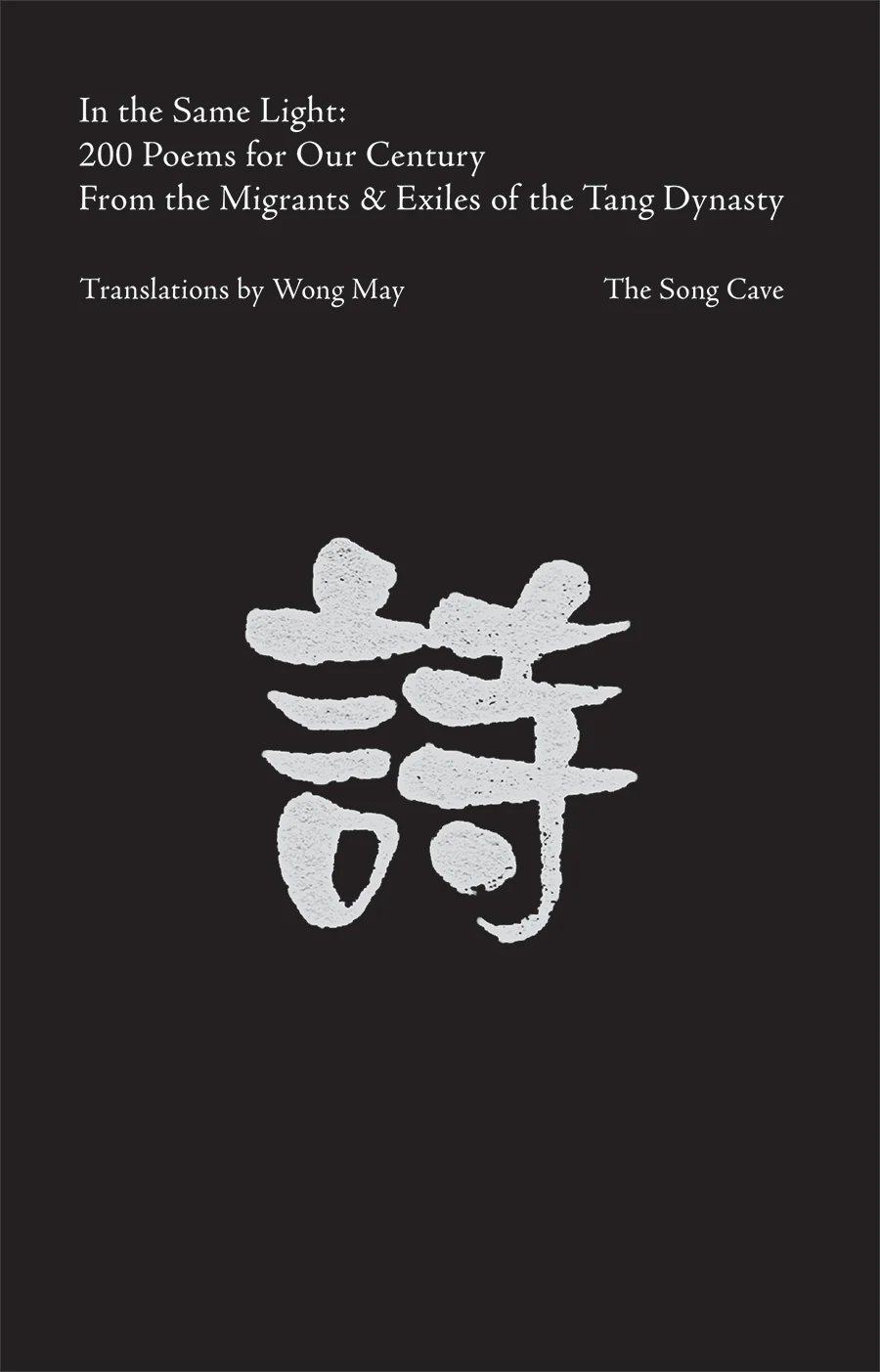A Place We Have Both Left and Never Been
In front of an anticipatory crowd, the poet Marilyn Chin arrived onstage in a red silk jacket. What stands the test of time? A poet herself never knows. But she can see it through the decades of her career, which poems keep floating to the surface. Chin introduced herself to the crowd with a booming recitation of one of her most popular poems, published almost thirty years ago: “How I Got That Name.” She took in the energy of the crowd, radiating power and warmth, speaking like she was orating in front of the gods, hands on her hips.
an essay on assimilation
I am Marilyn Mei Ling Chin
Oh, how I love the resoluteness
of that first person singular
followed by that stalwart indicative
of “be,” without the uncertain i-n-g
of “becoming.” Of course,
the name had been changed
somewhere between Angel Island and the sea,
when my father the paperson
in the late 1950s
obsessed with a bombshell blond
transliterated “Mei Ling” to “Marilyn.”
Chin blurs the line between speaker and poet, and her epigraph tells us that this poem is itself a hybrid form. Even within the diction, there are quick shifts from the firm, formal, and grammatical (“the resoluteness / of that first person singular”) to the colloquial and the suggestion of whispered scandal (“obsessed with a bombshell blond”). Her name, a source of pride and identity, is flung between Chinese and English, between familial history and American popular culture through sound and not meaning. The name becomes a site of a split self. As in her poetry, many histories and influences are attached.
One way of creating the contemporary is to look at the past: myths, poets, familial and cultural history. This awareness is something that Chin leans into. Later in the same poem, we hear a reference to William Carlos Williams’s “The Red Wheelbarrow.”
History has turned its stomach
on a black polluted beach—
where life doesn't hinge
on that red, red wheelbarrow,
but whether or not our new lover
in the final episode of “Santa Barbara”
will lean over a scented candle
and call us a “bitch.”
Chin knows the Western Canon and riffs on it from her perspective as a feminist, immigrant poet. In her hands, she will never let history be clean. She gives it a body so it can feel shaken, so it can feel discomfort. She has complicated the poem’s original intention by dispersing what her life hinges on —a history, narrative, and landscape beyond “that red, red wheelbarrow” that includes soap operasand lovers. Chin has brought “The Red Wheelbarrow” into a new context, turning it into a sprawling dramatic monologue that takes up space and air unlike the compact original, often compared to haiku.
so much depends
upon
a red wheel
barrow
glazed with rain
water
beside the white
chickens
Looking to the past does not have to be a passive act. Poets can create adjustments to the scene they glance back at—put on curtains, expand the window, plant trees, create a storm.
This is especially true for translators. Chin mentioned during her reading that the Tang Dynasty poets were an influence that would never leave her poetic ear. She both grew up hearing them and translated their work as an undergraduate. Her poetry is one way of hearing those poets in our century.
May Wong’s book of translations, In the Same Light: 200 Tang Poems for Our Century From the Migrants & Exiles of the Tang Dynasty, is another way of hearing them. Wong does not go Ezra Pound’s route of completely decontextualizing the poems from their cultural source. But through the title and Wong’s afterword, she argues that these poems are applicable to our lives now. It’s all in the title: moonlight, exile, migration.
In her afterword, Wong describes the significance of the moon in Tang Dynasty poetry, calling it “primarily the exile’s moon,” a touchstone for people “separated by war, [looking] up to the same source of light, drawn by the same longing.” As a kind of exile-poet herself, Wong creates a point of access between the Tang Dynasty poems and our contemporary and suggests that these translations could be a gift from one era of exiles to another. We long under the same moon, under its same light.
As I read Wong’s translations, I was particularly struck by the active nature of the moon in the ending section of “Dreaming of Li Bai” by Du Fu.
Uncannily bright,
The moon too
Has no place to hide,
Crashing through the rafters
As it leaves the sky—
My absent friend
I begin to dream in your colors.
The moon is due to depart because of the inevitable arrival of morning. But instead of fading quietly into exile, the moon makes a scene, crashing into the house with its light. For an instant, the moon, that thing that everyone has directed their longing towards, has come away from the realm of the wishful and celestial. For the reader, it becomes intimate and domestic. It falls like a body. Wong portrays this softness sonically through the repetitions of a cooing -oo sound (“moon too,” “through”). Though the moon dissipates, it leaves that gift of intimacy, allowing Du Fu to almost see through his friend’s eyes. This is also the effect of reading Wong’s translations. They steal into the landscape where I read and write, slightly adjusting everything I know. Through her translations, Wong stretches English, makes it new to us again, changes the way we describe the water, the birds, the moon and all the hidden words inside them.
Wong and Chin show us that loss and the migrations of people will always be contemporary. How could they not be? In one formulation of the contemporary, the poet works in palimpsest. The conditions of loss and migration naturally carry within them a past and a present that haunt each other, the joyous flash of a before, the biting cold of a now. And we read Wong’s translations and Chin's poems, feeling distance, newness, and sparks of remembrance, for they render a place we have both left and never been.


